Netanyahu Plays With Fire While the US President Plays With his Ice Cream Cone
With a war-hawkish Netanyahu and a US President who's more vanilla than visionary, the global peace recipe could use a rewrite. Iran may be serving us the "new scoop."
Recent escalations in the Middle East have spotlighted Iran's strategic shift from "strategic patience" to "active deterrence," a transformation punctuated by a series of calculated missile and drone strikes against key Israeli military sites known as Iran's Truthful Promise operation. This shift was catalyzed by Israel's attack on an Iranian consulate in Damascus on April 1st, which Tehran perceived as an overt declaration of war.
The Iranians were existentially motivated to ‘never again’ endure the kind of vulnerability they experienced during the Iran–Iraq war. They resolved to achieve this on both military and strategic fronts. Step one was to develop a domestic armaments industry so that in the future, Iran could fight alone. Impressively, within a few decades, the country’s remarkable drone and missile programs were fully operational and stocked.
The Islamic Revolutionary Guard Corps (IRGC) Aerospace Force conducted a precise aerial operation targeting Israel's advanced air defense systems, famously known as the Iron Dome, proving their vulnerability despite previous perceptions of impenetrability. This operation has been lamented in publicationsand commentary as reminiscent of a famous scene from the movie "The Untouchables." In this gripping scene, the word "Touchable" is ominously written in blood inside an elevator, serving as a stark and chilling reminder that no one is beyond reach.
Strategically, Iran has aimed to keep conflicts away from its borders, adopting an “area denial” strategy, or what some would call establishing “strategic depth.” This strategy focused heavily on diplomacy and trade, soft power tools to engage positively with direct and far neighbors alike.
However, like October 7th changed the world forever, so has April 1st, 2024: the day Israel became “Touchable.”
A MASTER MOVE
The Israeli missile attack on the Iranian consulate in Damascus, Syria, is considered a violation of international law, specifically the Vienna Convention on Diplomatic Relations of 1961. This convention, which most countries, including Israel and Iran, are signatories, stipulates that the premises of diplomatic missions are “inviolable and the receiving state must protect the mission from intrusion, damage, and disturbance of peace.”
Iran's legal response employed a mix of older and sophisticated missile systems, demonstrating their military capabilities and a comprehensive strategy after facing historical traumas from enduring the Iran-Iraq War. This strategic strike followed decades of tensions, which were initially escalated by false justifications for war, including the non-existent weapons of mass destruction(WMDs).
Iran's military operation partly succeeded due to Israel's elevated alertness, triggered by Iran's strategic “72-hour warning” to neighboring countries setting up the “decoy operation.”
Whether you like it or not, it was a series of brilliant chest moves on Iran’s part.
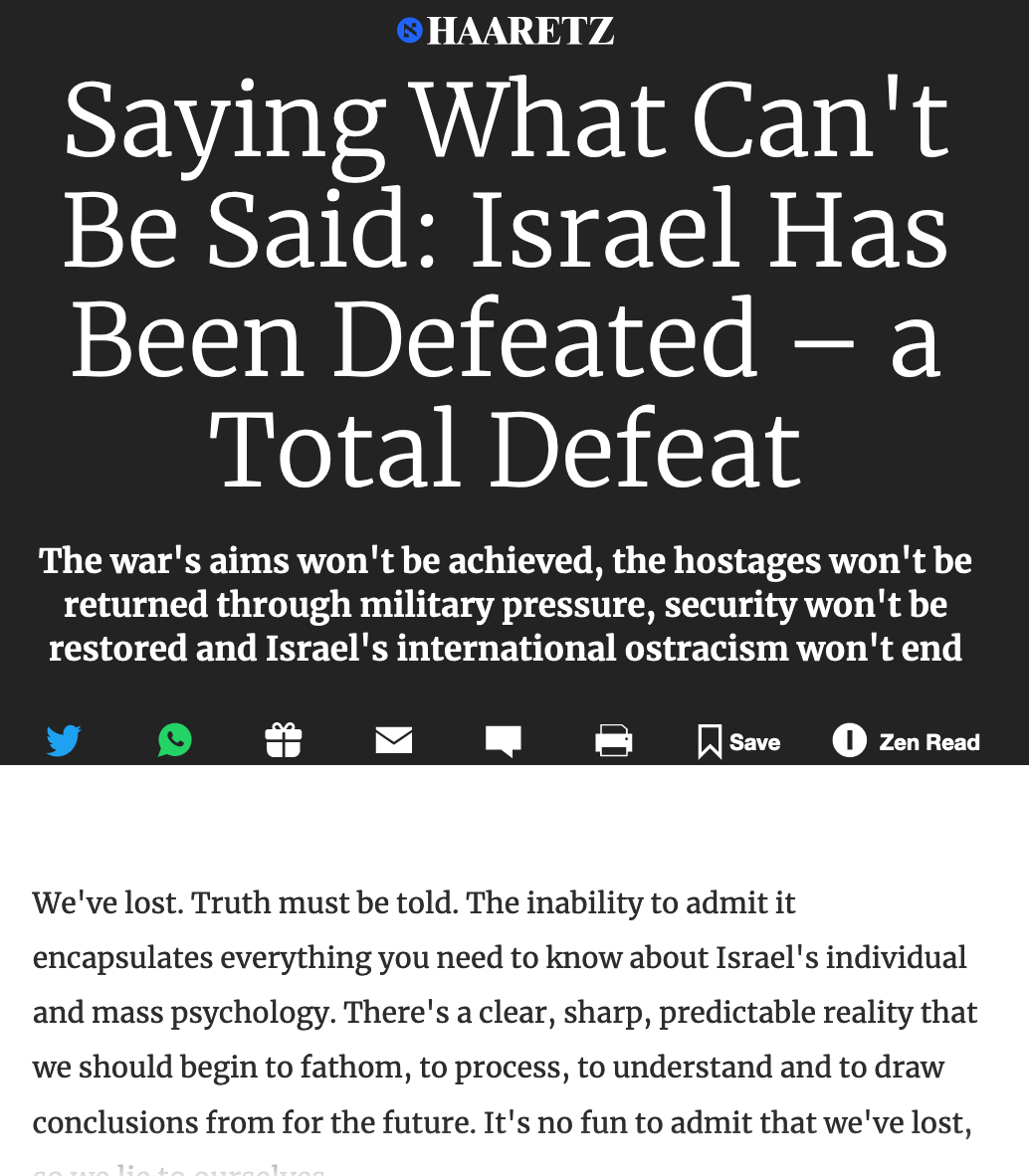
The IRGC's operation strategically forced Israeli, US, and UK defenses to reveal their capabilities and weaknesses by pursuing Iran’s drones for hours, providing Iran with valuable intelligence on how to bypass what is considered one of the most advanced air defense arrays globally. This intelligence could significantly shape future engagements and expose further vulnerabilities in Israel and American military infrastructures in the region.
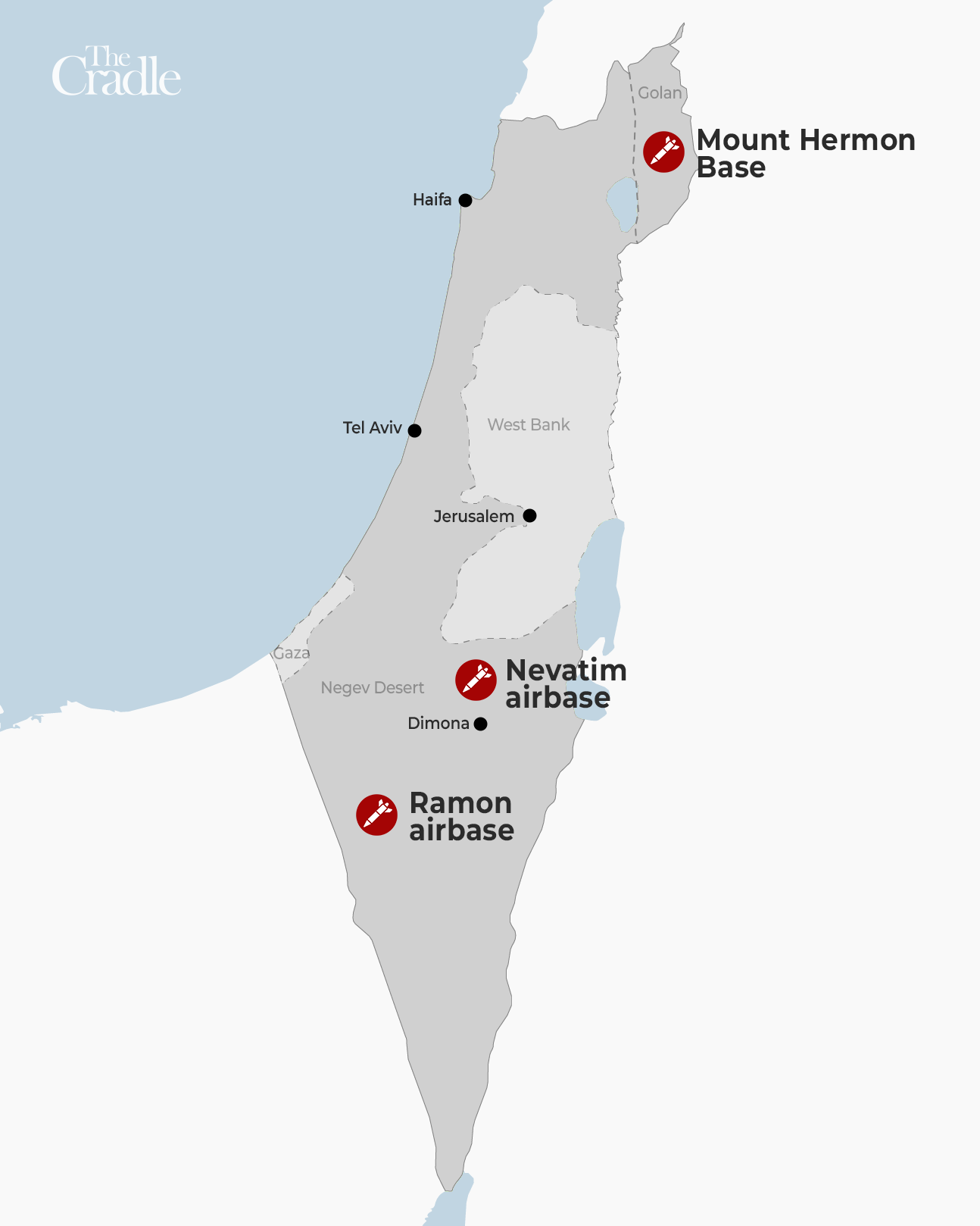
Despite the use of older MRBM models like Ghadr, Emad, and Dezful, [what a great way to effectively dispose of old drones] alongside one of its newest and most advanced missiles, the Kheibar Shekan – and despite the limited number of missiles launched (reasonably approximated at 30–40 projectiles) – the majority of Iran’s missiles successfully reached their intended targets.
This occurred even as Israel and its allies launched hundreds of interceptors – at an estimated cost of $1.1 to $1.3 billion over the span of a few hours. But cost is the least of Tel Aviv’s problems: availability of replacement interceptors is, and will always remain, its chief concern.
This situation parallels challenges faced by Ukraine, which has depleted its air defense interceptors. A sustained campaign of raids by IRGC/A could similarly exhaust Israeli “interceptor stocks,” particularly if the US needs to conserve its own reserves for future military engagements.
If we think of Israel’s air defense coverage as a thick blanket that was penetrated by IRGC/A, then air defense coverage for US bases in Syria, Iraq, and the Persian Gulf states is a thin and tatty blanket. Any potential direct US conflict with Iran could expose US bases to severe attacks, with the possibility of these military sites being overrun and American troops being at great risk.
While news is constantly changing minute by minute on this global cliffhanger, one of the most telling pieces of intel is this: Netanyahu wants to save face while preserving Israel’s “alliances.”
That’s what this is about? Netanyahu’s fragile ego?
US FINGERPRINTS ABOUND
It has now boiled down to Netanyahus’ reputation. However, no doubt, the US is still keenly interested in expanding the concept of "Greater Israel," which extends beyond a purely Zionist project for the Middle East; it is a critical component of US foreign policy aimed at expanding American influence and fragmenting the region, known as balkanization. This strategy involves destabilizing and weakening key regional economic powers such as Turkey and Iran, aligning with the goals of promoting US hegemony. This approach has been evident since the Gulf War in 1991, during which plans for creating a "Free Kurdistan" emerged, potentially annexing territories from Iraq, Syria, Iran, and Turkey, thus contributing to the political fragmentation of the Middle East.
Remember Wesley Clark’s famous statement in a 2007 interview, “Seven countries in five years?”
MSM SPIN
Mainstream Media can spin it as much as it wants, but the implications of Iran’s military actions are profound. They suggest a possible new era in which Iran is no longer merely reactive but possesses the capability and willingness to assert its deterrence on a regional scale. These recent events have led to a serious reconsideration of military strategies and defenses, potentially prompting a reassessment of geopolitical stances and alliances in the region…. and it’s about time.
GLOBAL REACTION
The International Atomic Energy Agency (IAEA) has expressed concerns over a potential Israeli strike on Iran's nuclear facilities following a recent escalation.
Iran Navy Escorting Iranian Commercial Ships To Red Sea To Prevent Reprisal.
Italy closes its consulate in Tehran until further notice.
US issues travel warning for Israel with Iran attack believed to be imminent and fear Gaza war could spread
France and Germany have urged their citizens to leave Israel due to the escalating tensions in the region. Germany has chartered Lufthansa to evacuate its citizens who want to leave today and Friday, while France’s foreign minister has recommended that French nationals living in Israel “temporarily leave the country.”
The US has placed its troops in the Middle East on high alert in anticipation of possible attacks by Iran-backed forces. In response to the increased risk levels.
Canada escalated its travel advisories for Israel and the West Bank to "avoid all travel," advising Canadian citizens to consider leaving the region by commercial means due to the heightened security risks.
Israel's cabinet approved a five-year, $5 billion initiative to “enhance communities “(build settlements) near the Gaza border, damaged by the October 7th event.
Russia’s Permanent Representative to the UN Security Council, Vassily Nebenzia, has said that the Council must urgently consider imposing sanctions on Israel for its non-compliance to the Gaza ceasefire resolution in Ramadan.
While unsubstantiated, “Egyptian officials tell a Qatari outlet that the US has accepted Israel’s plan for an operation in the southern Gaza city of Rafah, in return for not carrying out a large strike in Iran in response to Tehran’s unprecedented missile and drone attack.”
HOW TO KNOW IF/WHEN THE ISRAEL GAUNTLET HAS DROPPED
The potential for confrontations to escalate into a more extensive conflict could have far-reaching consequences, affecting global security and diplomatic relations.
How will we know when the gauntlet has dropped?
Scott Ritter, a former US Marine intelligence officer and lead inspector for UNSCOM's Concealment and Investigations, suggests that if Israel's Ben Gurion Airport closes, it likely reflects a significant indicator of escalating security threats or military activity in the region. Ben Gurion Airport near Tel Aviv is Israel's largest and main international gateway. Historically, the airport has only shut down or faced severe disruptions during war or major security incidents.
Thus, if Ben Gurion Airport were to close, it could signal that Israel is either anticipating or already experiencing events severe enough to warrant extreme precautions. Such a move would likely be considered a bellwether for increased conflict or instability in the Middle East.
I highly suggest Americans (and the rest of the world) closely watch for this, and I can’t wait for the day I can stop reporting on this development.
If you find these interviews and articles informative, please become a paid subscriber for under 17¢ a day. I don’t believe in paywalls, but this is how I make a living, so any support is appreciated. Either way…. it’s available to you….


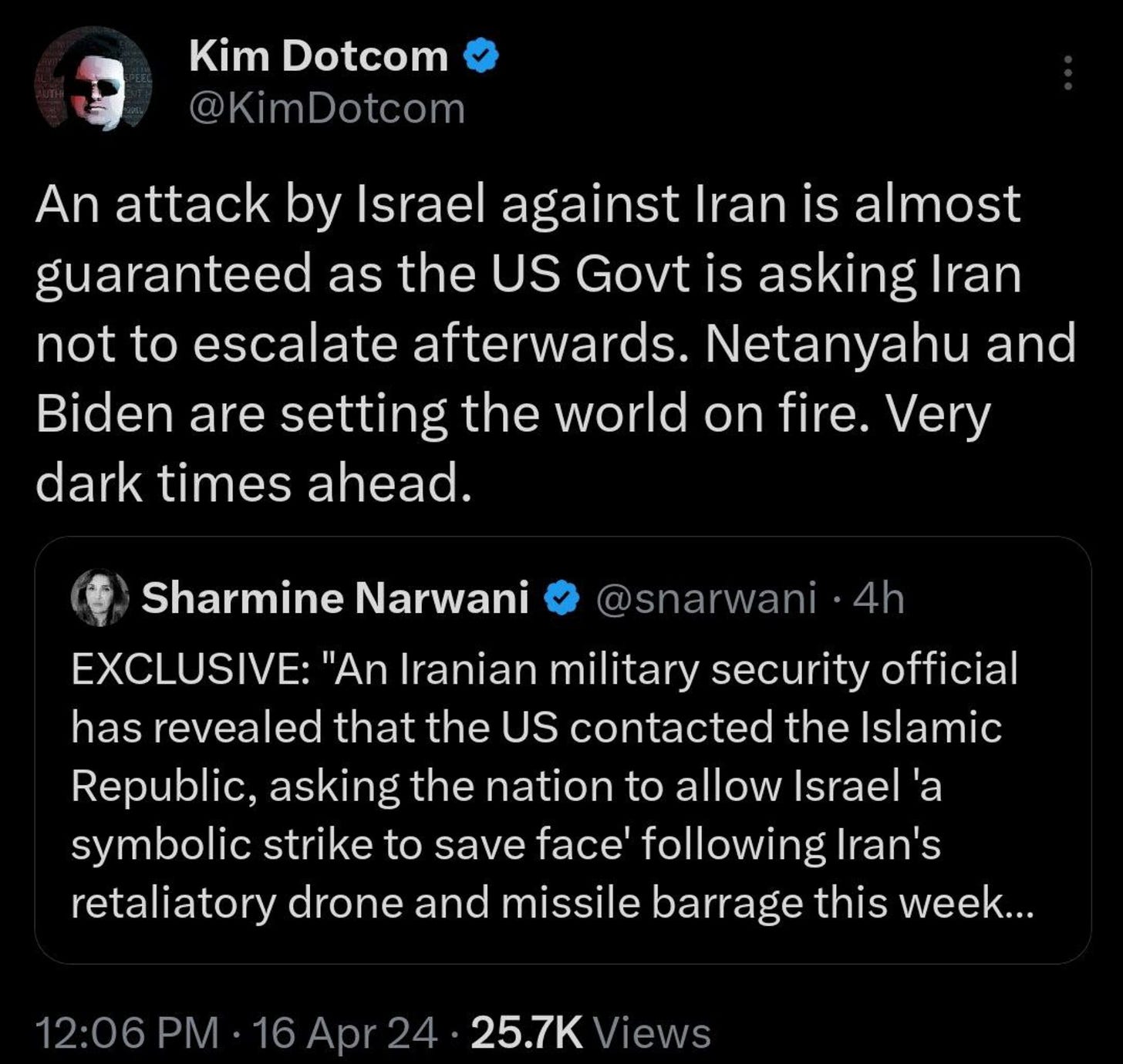
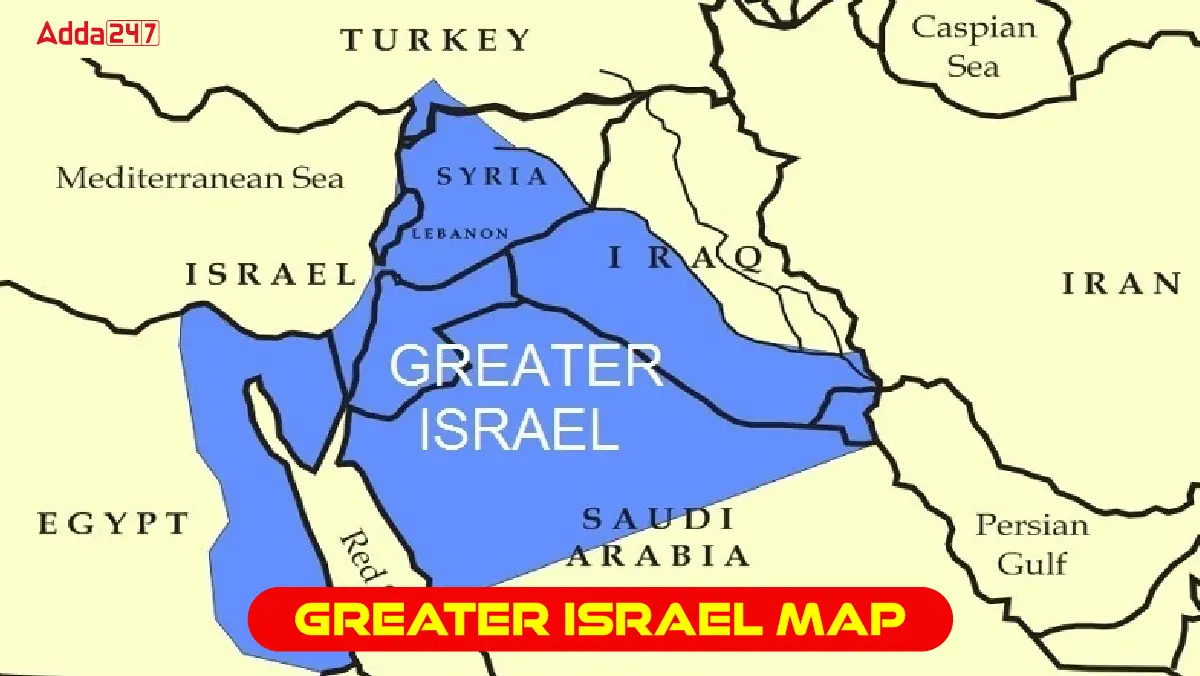
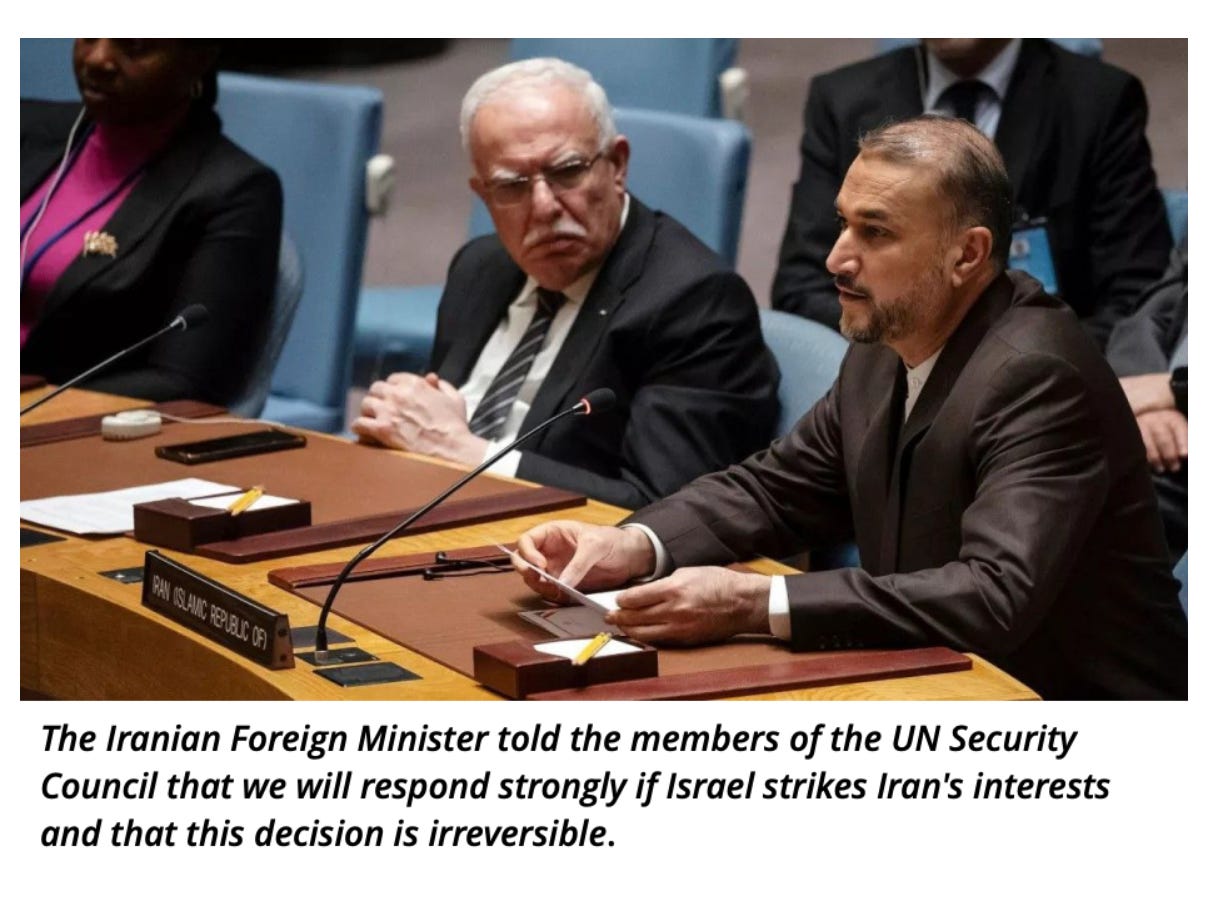

No comments:
Post a Comment